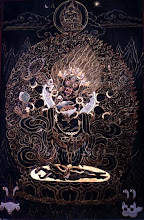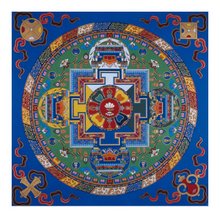 Act Normal addresses questions faced by many young men who join a monastery at a young age: What is the “real” world like? What am I missing by not being in a relationship, by not having a family? How can I renounce what I haven't yet experienced? Shot over a decade in Iceland and Thailand, the film follows a young Englishman who after 16 years as a Buddhist monk puts aside his robes for a wife, a job, and a “normal” life.
Act Normal addresses questions faced by many young men who join a monastery at a young age: What is the “real” world like? What am I missing by not being in a relationship, by not having a family? How can I renounce what I haven't yet experienced? Shot over a decade in Iceland and Thailand, the film follows a young Englishman who after 16 years as a Buddhist monk puts aside his robes for a wife, a job, and a “normal” life.
In the early moments of the film Dhammanando (formerly Robert T. Edison) explains that while the monastic life may seem to be an escape from “real” life, it is in fact a direct confrontation of reality shorn of all distraction. It is the grand experiment in finding out what it is “to be.” Perhaps Dhammanando's renunciation of his renunciation was part of this journey of discovery, but the audience is never sure because the director never asks. To what degree did the ex-monk continue his practice while a layman? His wife suggests certain patterns of behavior continued – such as mindfulness and kindness – but when he set out to be a lay person, did he also set aside all he had learned, or was his journey into the “real” world a journey deliberately informed by Buddhist principles?

In his choice of title, director Olaf de Fleur may have been suggesting more about the film than its subject. His narrative sequence seems a bit contrived, with the first part of the film jumping back and forth across the span of Dhammanando's life, resolving into a mostly conventional narrative that preserves the dramatic disrobing for the latter third of the film. Along the way de Fleur mixes in high contrast, black and white, Dutch angles, and dramatic recreations of childhood, a hodge-podge of styles and effects that keep the viewer intrigued but never really suggest anything meaningful in the context of the story. The most notable aspect of the production is Barði Jóhannsson's lush music, written not for the film itself but taken from the artist's 1997 release Haxan, a neo-romantic score-without-a-film performed by the Bulgarian Symphony and nominated album of the year for the 2007 Icelandic Music Awards.

Perhaps if Dhammanando had been doing academic or intellectual work, instead of putting in hours as a security guard, he may have found “real” life a bit more challenging, a bit more worth the effort. In the end, he finds the commercial world contentious, competitive, and confusing. He seems genuinely happy to be back in the monastery, a safe environment for a retiring, self-absorbed lover of language and ancient Buddhist texts.

Dhammanando is currently living and translating in Thailand and is an active member of the online Buddhist community Dhamma Wheel.
Act Normal is available for rent as streaming video at Poppoli Pictures. You can watch several clips, as well as a 10-minute documentary on the Making of Act Normal.
#



























0 comments:
Post a Comment